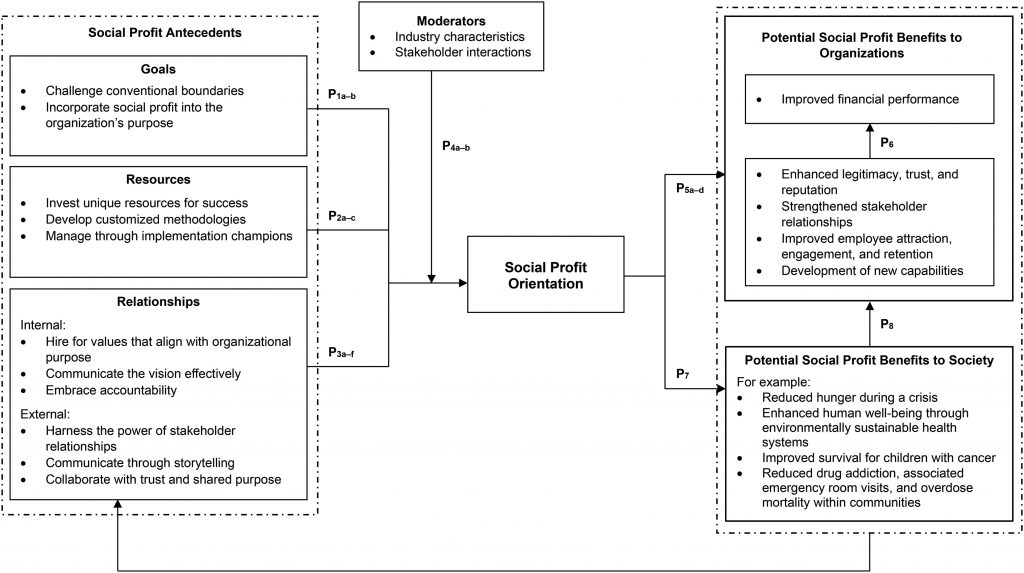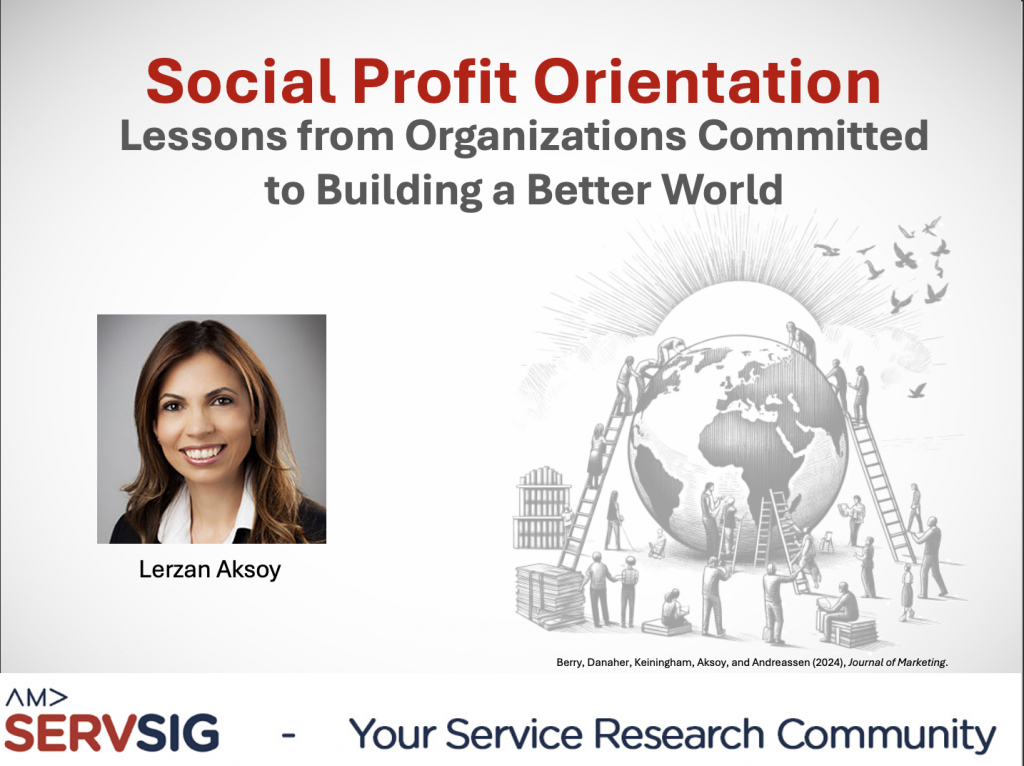Guest article by Lerzan Aksoy.
In an era defined by unprecedented challenges—climate change, poverty, pandemics, and social inequality—businesses are increasingly called upon to play a transformative role in society. The traditional focus on generating financial profit, while still essential, is no longer sufficient. The complexities of modern life require organizations to go beyond conventional boundaries and actively contribute to solving the world’s most pressing problems. This is where service organizations, particularly those aligned with the transformative service research (TSR) agenda, have a unique and critical role to play.
Service researchers are uniquely positioned to help organizations develop service-specific solutions to today’s most complex societal challenges. The life-quality challenges of modern society—climate change, poverty, hunger and homelessness, wars, pandemics, and more—alter what society needs from corporations and other organizations. Generating financial profits, noble and important as it is, is no longer enough. Progress is underway, yet the science and practice of service are far from fully realizing their potential to drive significant social and environmental improvements.
Our newly published study, Social Profit Orientation: Lessons from Organizations Committed to Building a Better World, offers a groundbreaking framework designed to guide managers in embedding social profit into the very fabric of their organizations. This research bridges the gap between theory and practice, providing actionable insights that can enrich both teaching and future research endeavors. The concept of Social Profit Orientation represents a fundamental shift in how organizations approach their mission, moving from a sole focus on financial gain to a more holistic approach that includes the deliberate, conscious effort to address systemic social or environmental challenges.

Grounded in 62 in-depth executive interviews across a global sample of 21 organizations, our study highlights best practices and strategies for creating social profit. These insights are not just theoretical; they are practical tools that can be applied in real-world settings. For instance, organizations that adopt a Social Profit Orientation proactively invest resources—such as knowledge, infrastructure, labor, reputation, money, and time—to enhance the common good. This approach not only addresses critical societal issues but also strengthens the organization itself, leading to enhanced legitimacy, stronger stakeholder relationships, improved employee engagement, and increased innovation.
Consider the example of Gundersen Health System, one of the organizations featured in our study. Under the leadership of Dr. Jeff Thompson, Gundersen became the first U.S. health system to offset 100% of its fossil-fuel use with self-produced energy. Their initiatives include harnessing solar and wind power and transforming landfill biogas into electricity and heat. This holistic approach to sustainability is not just an add-on; it is woven into the very fabric of the organization, demonstrating how a Social Profit Orientation can lead to both environmental stewardship and business success.
Another example comes from Oportun, a financial services organization committed to tackling financial exclusion. By providing affordable credit to underserved communities, Oportun offers an alternative to payday lenders that often trap people in cycles of debt. Through significant investments in technology, Oportun has successfully issued millions of loans, enabling its customers to avoid exorbitant interest rates and fees. By year-end 2023, Oportun had provided more than $18.2 billion in credit, saving its customers $2.4 billion in interest and fees. This example illustrates how organizations can align their financial goals with a broader social mission, creating value for both the business and the community.
The implications of our research extend beyond individual organizations. By embracing a Social Profit Orientation, the entire service field can advance in its mission to better serve society. This is not just about achieving short-term financial gains; it is about ensuring that our work leaves a lasting positive impact on the world. The organizations we studied are leading the way, demonstrating that the most profitable strategy might also be the one that makes the world a better place.
For educators and researchers, these findings offer a wealth of opportunities to enrich the classroom experience and inspire the next generation of business leaders. By incorporating the principles of Social Profit Orientation into their curricula, educators can prepare students to not only tackle pressing societal challenges but to see the creation of social profit as an integral part of doing business. This shift in mindset is critical for developing managers who are not only capable of driving financial success but who are also committed to making a positive impact on society.
To support this educational mission, we have developed a range of practical teaching resources available at SocialProfitOrientation.com. These include a classroom-ready PowerPoint deck that illustrates key concepts of Social Profit Orientation with real-world examples from the organizations studied in the research. The site also offers a detailed teaching guide to help seamlessly integrate these materials into your courses. Whether you are an educator looking to enrich your teaching or a manager seeking to implement these strategies in your organization, these resources provide a valuable starting point.
As we move forward, the role of service in building a better world will only become more critical. The challenges we face are complex, but they are not insurmountable. By embracing a Social Profit Orientation, organizations can lead the way in driving innovation, fostering sustainable growth, and making a meaningful difference in the lives of individuals, communities, and society at large.
In conclusion, the time for action is now. We invite you to join us in this important work by exploring the resources available at SocialProfitOrientation.com and by incorporating these principles into your own teaching, research, and business practices. Together, we can ensure that the service field not only meets the demands of today’s world but also helps create a better, more just, and more sustainable future.
Read the full paper here. Access the teaching resources here.
Lerzan Aksoy
Dean and George N. Jean Ph.D. Chair
Professor of Marketing
Gabelli School of Business, Fordham University



